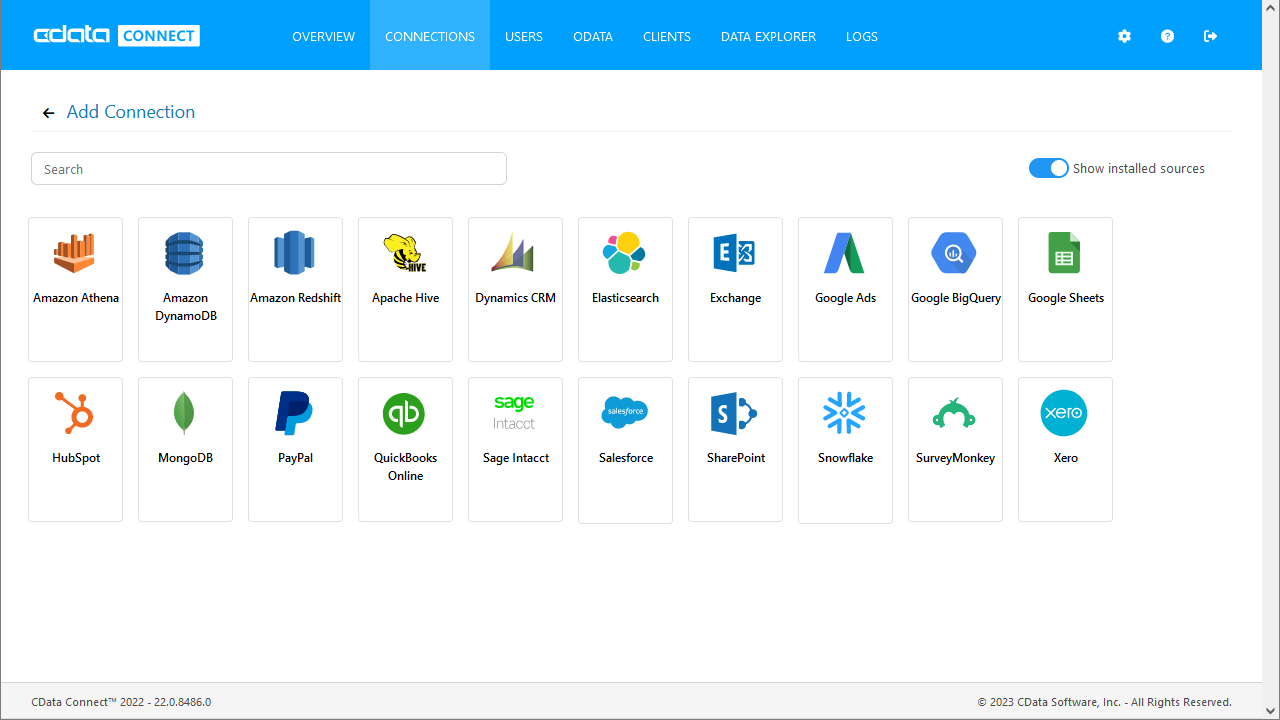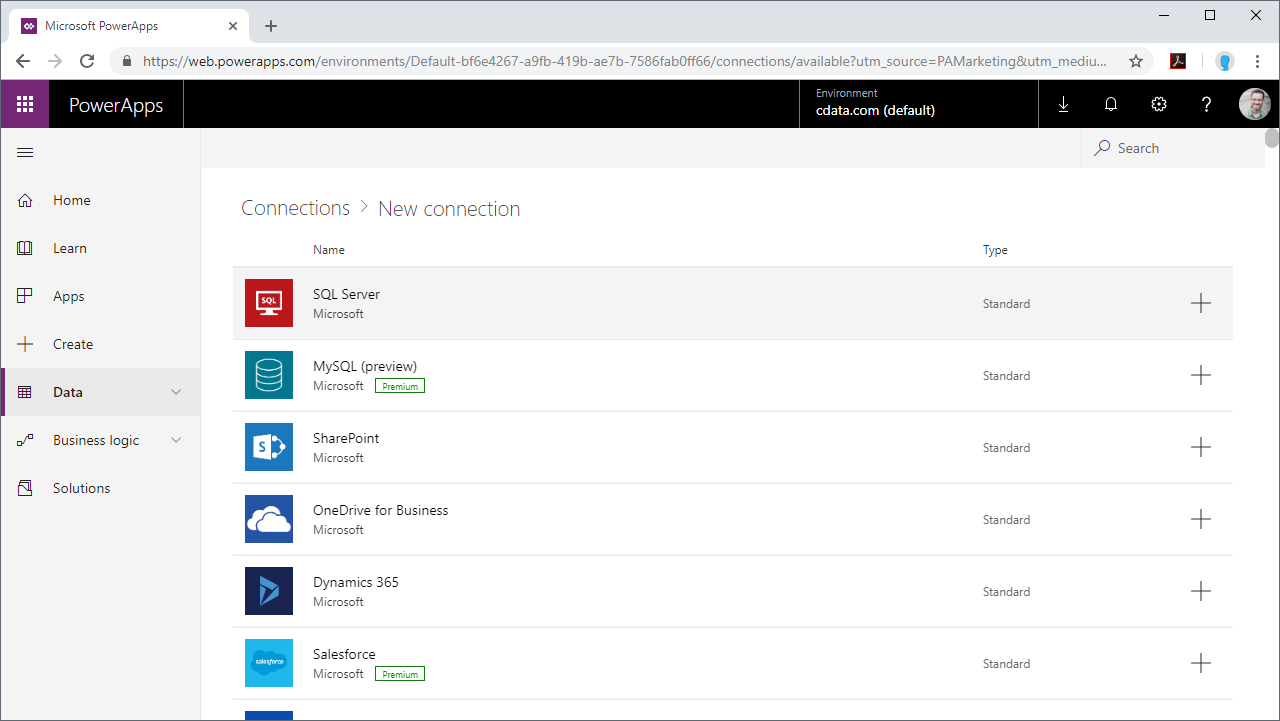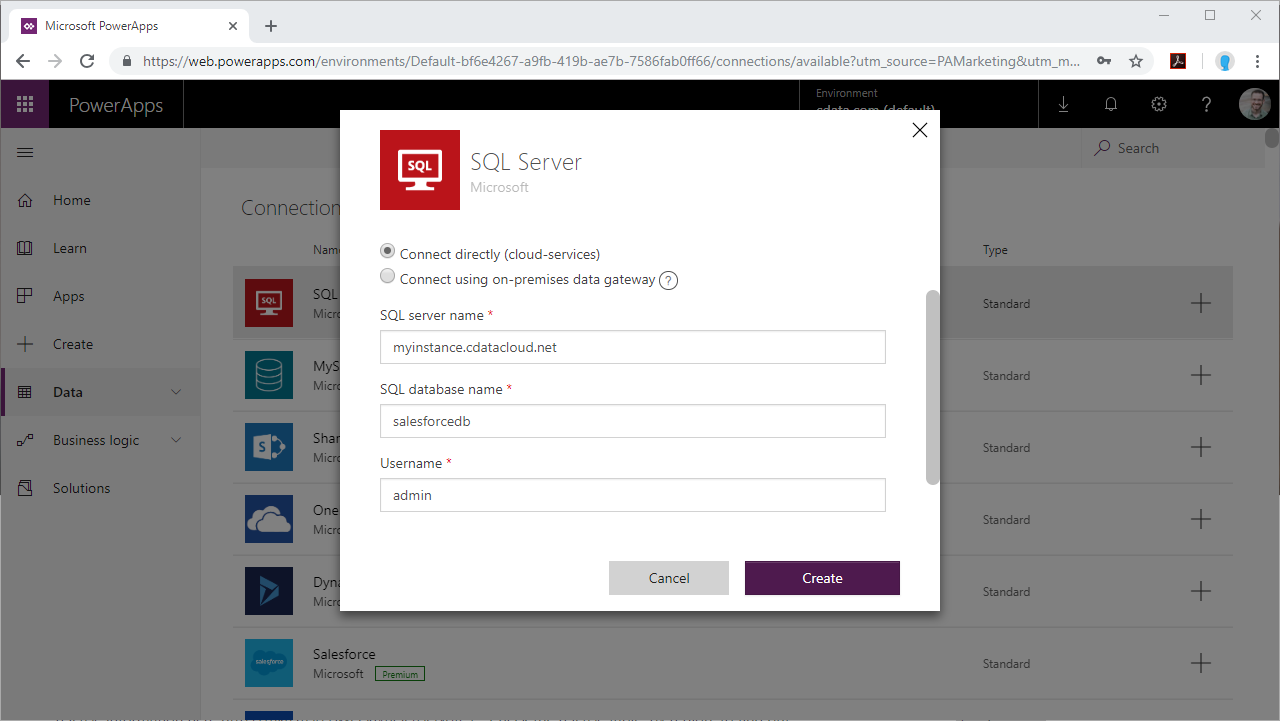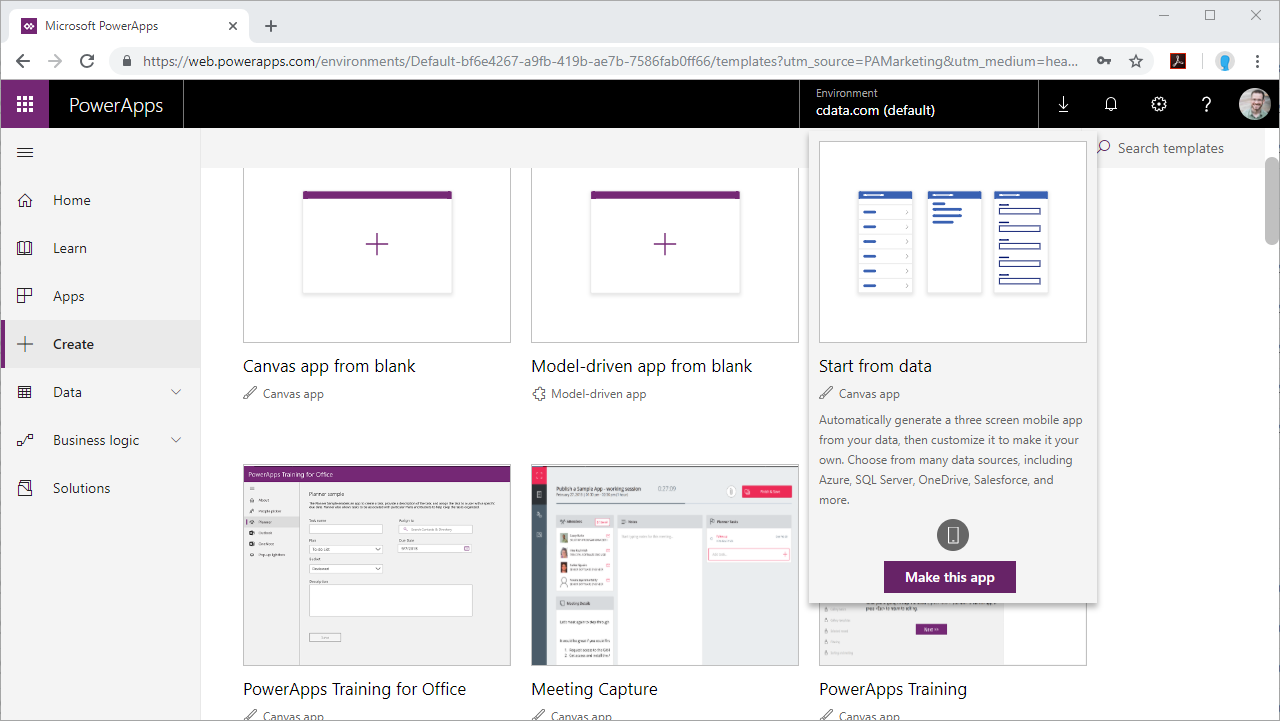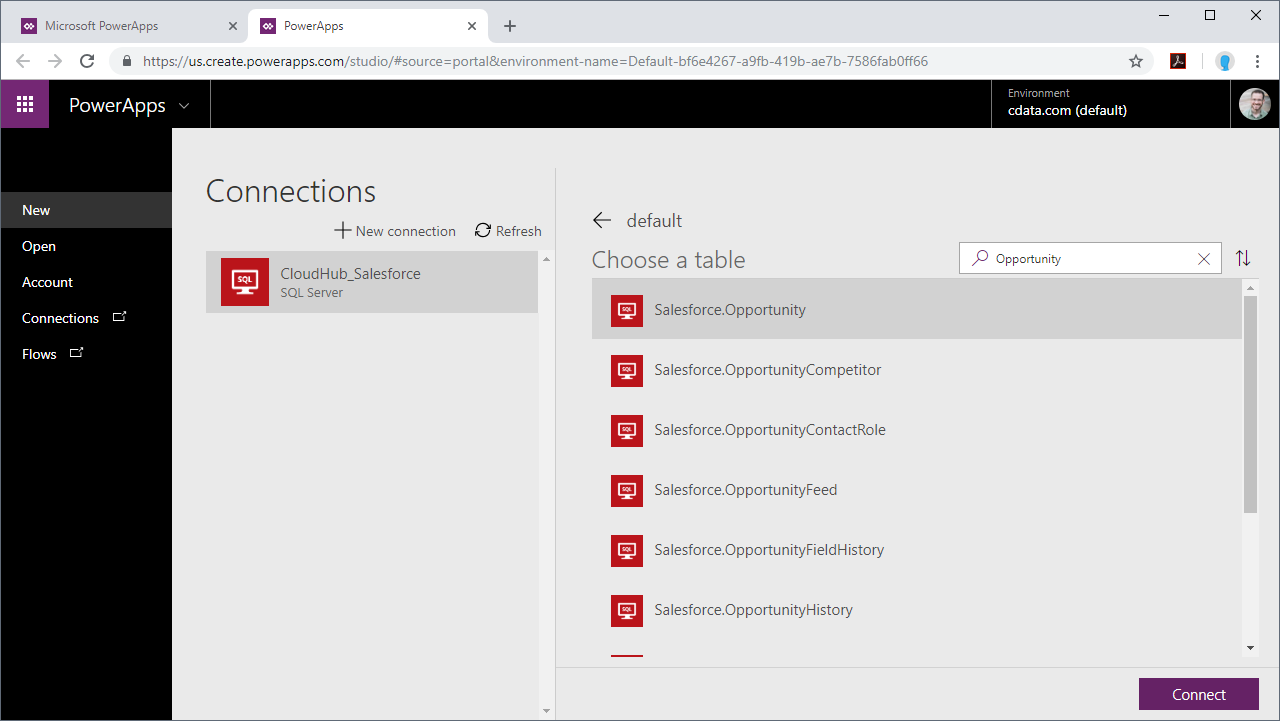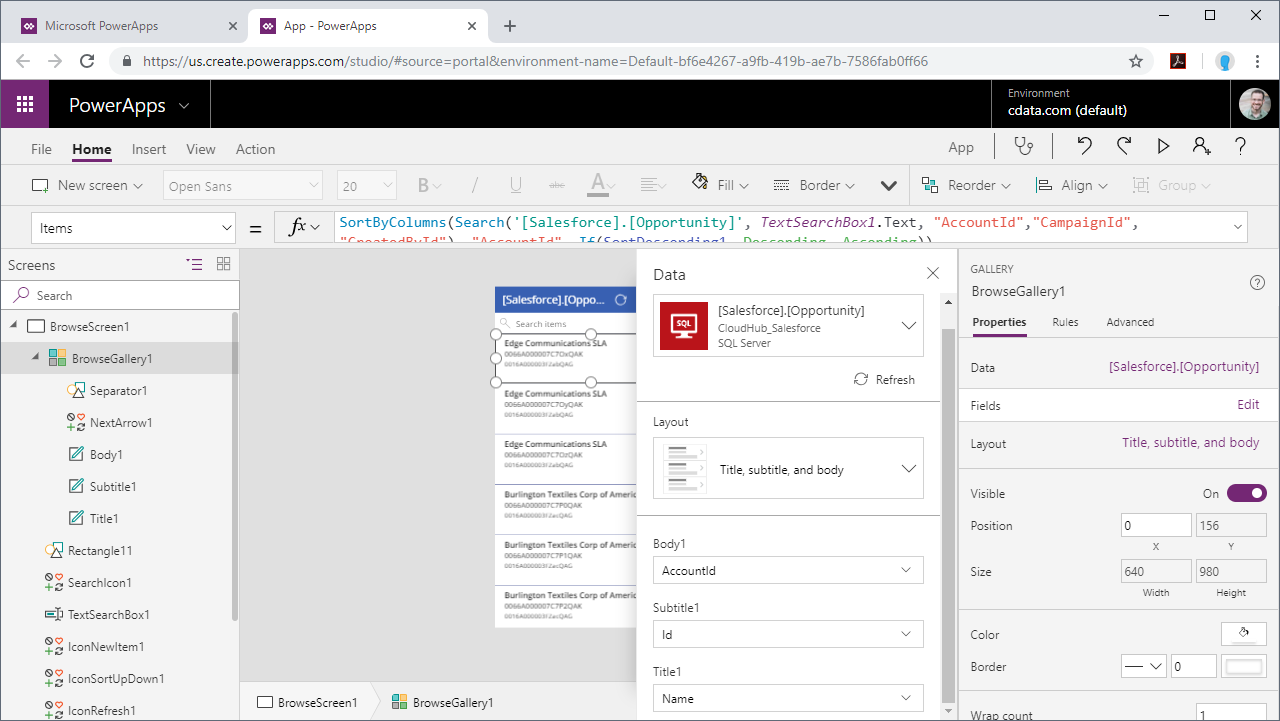Discover how a bimodal integration strategy can address the major data management challenges facing your organization today.
Get the Report →Integrate Live Clio Data into Custom Business Apps Built in Power Apps
Use CData Connect Server to create a virtual SQL Server Database for Clio data and integrate live Clio data into apps built in Microsoft Power Apps.
Power Apps is a service for building and using custom business apps that connect to your data and work across the web and mobile — without the time and expense of custom software development. When paired with CData Connect Server, you get instant access to Clio data from the apps you build using Power Apps. This article shows how to connect to Connect Server from Power Apps and build an app based on live Clio data.
CData Connect Server provides a pure SQL interface for Clio, allowing you to easily integrate with live Clio data in Power Apps — without replicating the data. CData Connect Server looks exactly like a SQL Server database to Power Apps and uses optimized data processing out of the box to push all supported SQL operations (filters, JOINs, etc) directly to Clio, leveraging server-side processing to quickly return Clio data.
Create a Virtual SQL Database for Clio Data
CData Connect Server uses a straightforward, point-and-click interface to connect to data sources and generate APIs.
- Login to Connect Server and click Connections.
![Adding a connection]()
- Select "Clio" from Available Data Sources.
-
Enter the necessary authentication properties to connect to Clio.
Start by setting the Profile connection property to the location of the Clio Profile on disk (e.g. C:\profiles\Clio.apip). Next, set the ProfileSettings connection property to the connection string for Clio (see below).
Clio API Profile Settings
Clio uses OAuth-based authentication.
First, register an OAuth application with Clio. You can do so by logging to your Developer Account and clicking the Add button. Enter details and select the scope of your application here - these details will be shown to Clio users when they're asked to authorize your application. Your Oauth application will be assigned a client id (key) and a client secret (secret). Additionally you will need to set the Region in ProfileSettings connection property.
After setting the following connection properties, you are ready to connect:
- AuthScheme: Set this to OAuth.
- InitiateOAuth: Set this to GETANDREFRESH. You can use InitiateOAuth to manage the process to obtain the OAuthAccessToken.
- OAuthClientId: Set this to the client_id that is specified in you app settings.
- OAuthClientSecret: Set this to the client_secret that is specified in you app settings.
- CallbackURL: Set this to the Redirect URI that is specified in your app settings.
- Region: Set this in ProfileSettings to your Clio geographic region. Defaults to app.clio.com.
![Configuring a connection (SQL Server is shown).]()
- Click Save Changes
- Click Privileges -> Add and add the new user (or an existing user) with the appropriate permissions.
Connecting to CData Connect Server
To use Connect Server to integrate Clio data into your Power Apps, you need a new SQL Server connection:
- Log in to Power Apps
- Click Data -> Connections -> New connection
- Select SQL Server
![Creating a new SQL Server Connection]()
- In the connection wizard:
- Choose to connect directly
- Set SQL server name to the address of your Connect Server instance (CONNECT_SERVER_URL)
- Set SQL database name to the name of the virtual Clio database you created earlier (like cliodb)
- Set the Username and Password and click Create
![Connecting to Connect Server]()
Building a Data-Centric App for Clio Data
With the connection to Connect Server configured, you are ready to integrate live Clio data into the apps you build in Power Apps.
- Log in to Power Apps
- Click Create, hover over "Start from data" and click Make this app
![Creating a new app from data]()
- Select the SQL Server connection you created
- Search for or choose a table to work with
- Click Connect
![Connecting to Clio data]()
- Customize the newly created app just like you would any other, including changing the layout and setting the fields exposed in BrowseScreen, DetailScreen, and EditScreen
![Customizing the Clio data app]()
At this point, you have an app with read access to live Clio data that you can save and publish for use within your organization.
SQL Access to Clio Data from Applications
Now you have a direct connection to live Clio data from Microsoft Power Apps. You can create more connections and apps to drive business — all without replicating Clio data.
To get SQL data access to 200+ SaaS, Big Data, and NoSQL sources directly from your applications, see the CData Connect Server.






